What is an arc fault?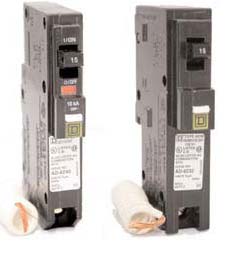
An arc is defined as an electrical discharge between two conductors. An arc fault occurs when an unintended arc flows through an unplanned path.
Arcing creates intense heat (>10,000 degrees Fahrenheit) which can easily ignite surrounding materials.
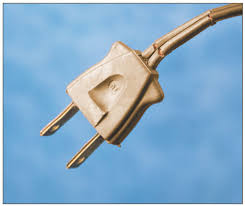 What causes an arc fault?
What causes an arc fault?
Arc faults can occur whenever there is damage to the wires that carry electricity in the home.
Examples include: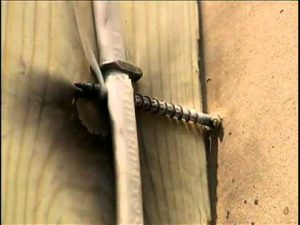
-Appliance or extension cords that are old, worn or cracked
-Cords damaged by heat from sunlight or heating equipment or by being closed in doorways
-Plugs damaged by furniture being pushed against them while they are plugged into the wall outlet
-Wires inside of the wall that have been damaged by screws or nails
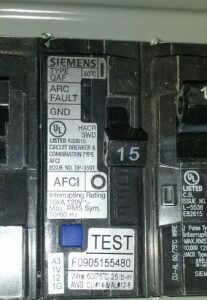
What does an AFCI do?
In our homes, an AFCI (arc fault circuit interrupter) monitors the electricity on its circuit to determine if a dangerous arcing condition occurs, such as when wires are damaged. These breakers are designed to shut off, or “trip” whenever this condition is detected, interrupting the flow of electricity in an attempt to minimize the risk of fire from an arcing situation.
When were AFCIs developed?
AFCIs were first required in the 1999 National Electrical Code (NEC), which required their use at bedroom outlet circuits. In 2002, their use was expanded to all bedroom circuit fixtures, including outlets, lights, smoke detectors and other equipment. In 2008, the requirement was expanded to most areas of the home, with the exception of areas (generally described as) having GFCI protection or individual appliance circuits. The 2014 code added protection requirements in kitchen and laundry areas.
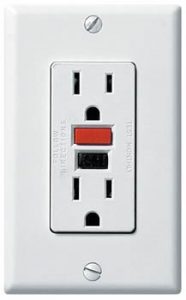
Is an AFCI the same as a GFCI?
While both AFCIs and GFCIs are intended to protect us from electrical hazards, they do perform different functions. GFCIs protect us from electrical shock that could occur if parts of an electrical appliance or tool accidentally become energized due to a ground fault (such as coming in contact with water). An AFCI protects the branch circuit wiring against arcing faults that could lead to an electrical fire.
Am I required to upgrade my existing home with AFCIs?
Each jurisdiction has their own interpretation of code requirements, and different areas may be enforcing different versions (years) of the code. Each jurisdiction has their own code official, called the “Authority Having Jurisdiction” (AHJ), who is the final authority on code enforcement in their area. The AHJ is the ultimate decision maker as to what is required for minimum AFCI protection in the home. While you must follow the minimum standards set by your AHJ, you are certainly allowed to go above and beyond the minimum standards, adding extra protection for your home and your family.

What if my home is older?
A large number of homes are older, and their electrical systems were designed and installed before AFCI technology existed. Electrical systems are subject to the natural wear and tear of aging, previous repair attempts by unqualified do-it-yourself homeowners, hungry rodents and other detrimental events. Because this damage is often hidden from view and can be difficult to detect, the addition of AFCI devices can help to mitigate the hazards inherent in an older electrical system.
What if my electrician recommends against AFCIs?
Like any new product on the market, there were some growing pains with AFCIs. Early AFCIs experienced nuisance tripping, but these issues were corrected  with the 2005 requirement that all new AFCIs were a “combination type” design, which helped eliminate some of the problems experienced with the original “branch-feeder” design. There are also some improper shortcuts that some electricians may take when wiring the home, such as combining neutral wires from different circuits in multi-gang switch boxes, which can cause an AFCI to trip. Some AFCIs are also larger than standard or tandem breakers, which may result in additional work and/or cost when they are installed in the panel. AFCI breakers cost more than standard breakers, which will increase the cost of the job, possibly causing the electrician to lose the bid to another electrician who is not using AFCI breakers. Regardless of your individual electrician’s opinion, you can rest assured that the expert engineers, scientists and professionals at the National Fire Protection Association, who develop the NEC, are exceedingly more qualified than your electrician to determine what is the most effective way to protect your home from electrical fires.
with the 2005 requirement that all new AFCIs were a “combination type” design, which helped eliminate some of the problems experienced with the original “branch-feeder” design. There are also some improper shortcuts that some electricians may take when wiring the home, such as combining neutral wires from different circuits in multi-gang switch boxes, which can cause an AFCI to trip. Some AFCIs are also larger than standard or tandem breakers, which may result in additional work and/or cost when they are installed in the panel. AFCI breakers cost more than standard breakers, which will increase the cost of the job, possibly causing the electrician to lose the bid to another electrician who is not using AFCI breakers. Regardless of your individual electrician’s opinion, you can rest assured that the expert engineers, scientists and professionals at the National Fire Protection Association, who develop the NEC, are exceedingly more qualified than your electrician to determine what is the most effective way to protect your home from electrical fires.
Note that all electrical repairs should be performed only by a qualified and licensed electrician.
Please Share with Friends!
I thoroughly enjoy creating these posts for you, the reader. Please take a moment to comment, letting me know what you think about the topic, and passing along any of your knowledge to our community. Please feel free to get in touch with me, letting me know if you have any specific topics that you would like to see covered on the site. And please feel free to share this content with your friends. The more people that we can help in their careers, the better!
 Thanks,
Thanks,
Joe
